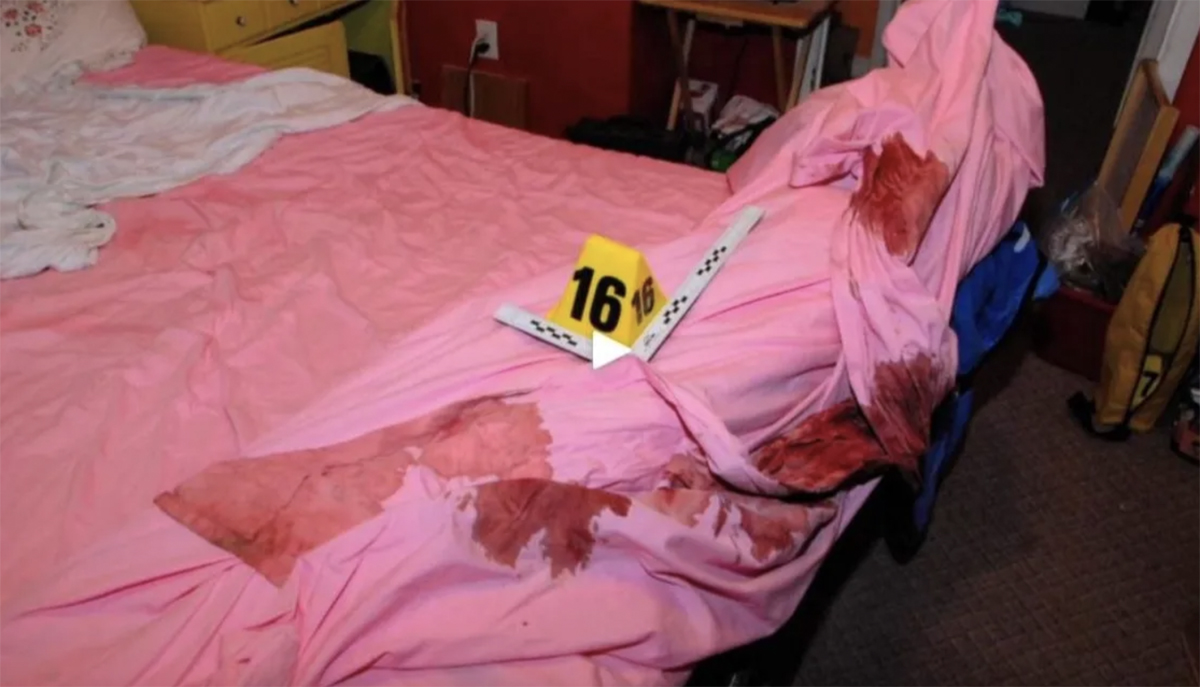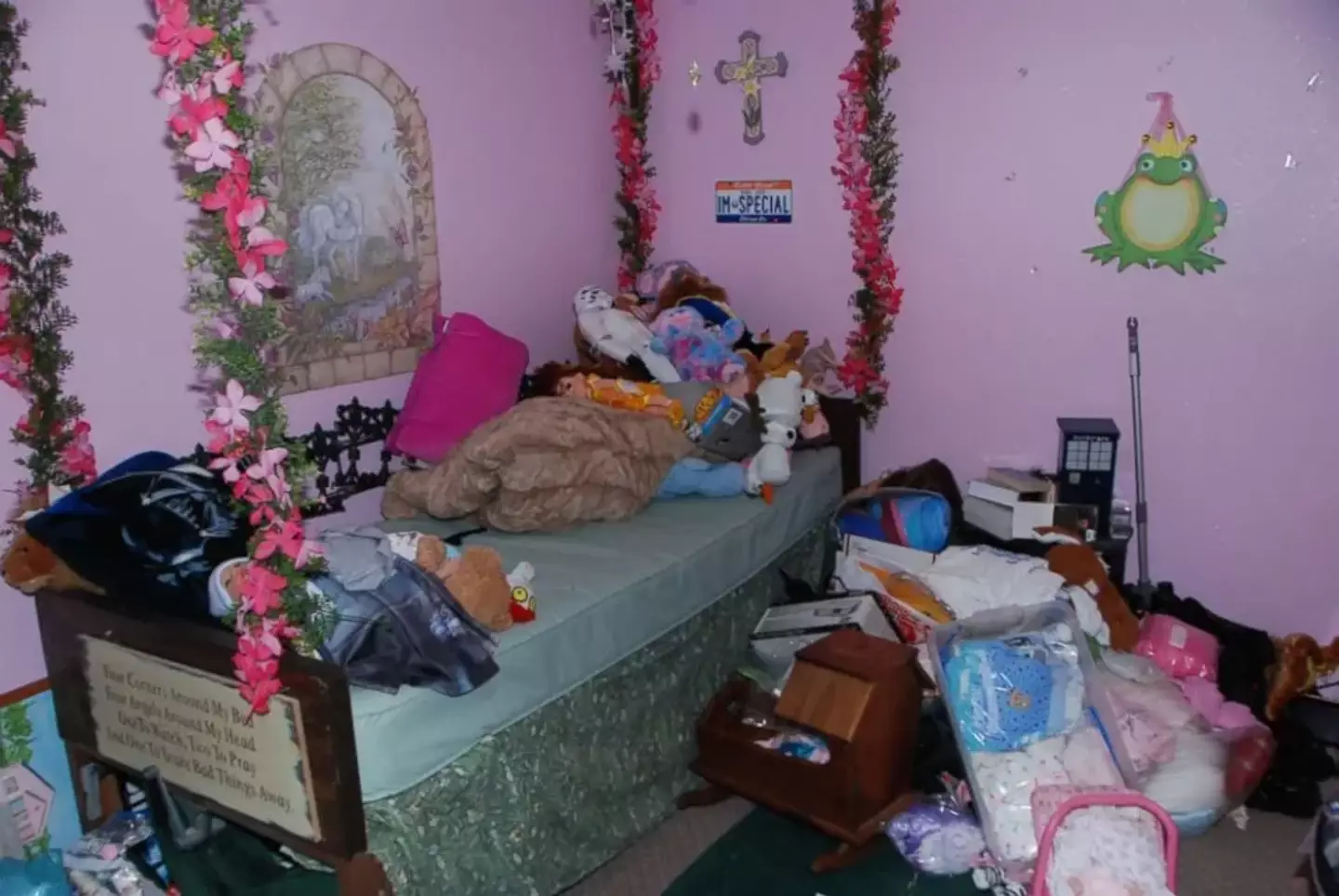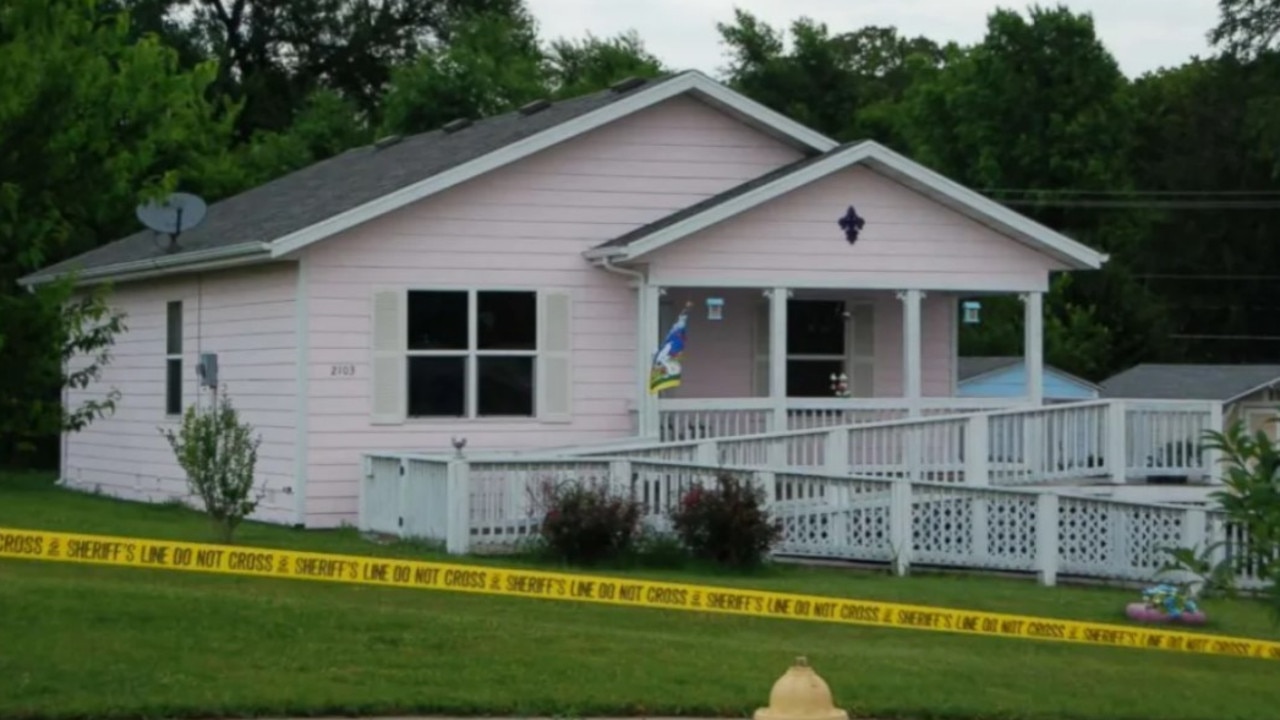Gypsy Rose Blanchard: Crime Scene Photos Resurface & Reactions | Discover Now
Can a victim be a perpetrator? The case of Gypsy Rose Blanchard forces us to confront this uncomfortable truth, as the lines between victim and offender become agonizingly blurred.
The story of Gypsy Rose Blanchard is a chilling descent into manipulation, medical child abuse, and ultimately, murder. It's a narrative that has captivated the public, fueled true crime documentaries, and sparked endless debates about culpability and the nature of justice. What makes this case particularly disturbing is the pervasive sense of deception that colored Gypsy's entire life. From a young age, she was subjected to a litany of unnecessary medical procedures and medications, all orchestrated by her mother, Clauddine "Dee Dee" Blanchard. Dee Dee, it turns out, suffered from Munchausen syndrome by proxy (MBP), a mental disorder where a caregiver fabricates or induces illness in a dependent to gain attention and sympathy.
The revelation of Gypsys release from Chillicothe Correctional Center in northwest Missouri on December 28, 2023, served as a reminder of the complex legal system, the consequences of actions and the media attention that follows those involved. This coincided with the resurfacing of disturbing crime scene photographs, which further ignited discussions surrounding the case. These images, depicting the house where Gypsy and Dee Dee had lived, offer a haunting visual record of the events that unfolded in Springfield, Missouri, on June 10, 2015. This is not just a story of a crime, but a study of the depths of human depravity and the lasting impact of abuse.
- Pejman Ghadimi Decoding The Matrix Building A 50m Empire
- Yasmeen Ghauris Net Worth Career 2024 Update
The release of Gypsy Rose Blanchard and the renewed public interest in her story, including the graphic crime scene photographs, raises fundamental questions about justice and empathy. Are we capable of seeing a person as both a victim and a participant in a crime? Is a sentence that considered the extreme circumstances and the many years of abuse at the hands of her mother appropriate? These are questions that continue to be debated, with strong opinions on both sides.
Here's a glimpse into the life of the central figure:
| Attribute | Details |
|---|---|
| Full Name | Gypsy Rose Blanchard |
| Born | July 27, 1991 |
| Residence | Springfield, Missouri |
| Relationship Status | Married |
| Conviction | Second-degree murder |
| Sentence | 10 years |
| Release Date | December 28, 2023 |
| Victim of | Munchausen syndrome by proxy inflicted by her mother |
| Ex BF | Nicholas Godejohn |
| Notoriety | Subject of the 2017 HBO documentary Mommy Dead and Dearest and the Hulu miniseries The Act. |
| Reference | Wikipedia: Murder of Dee Dee Blanchard |
The crime scene photos, which have been widely circulated on social media, serve as a stark reminder of the violence that occurred. They depict the house where Gypsy and Dee Dee had lived for years, capturing the aftermath of the murder. The images include unsettling photographs of Dee Dee's body, along with forensic details such as bloodstains and cigarette butts. These images have sparked considerable reactions, ranging from horror and disbelief to morbid fascination. Some social media users have even created memes and jokes about the tragic crime, which has drawn significant criticism.
- Nigel Havers Net Worth Bio What You Need To Know
- Markys Caviar Net Worth A Deep Dive Into The Luxury Food Brand
The case is riddled with complexities and layers of deception. The physical evidence in the home, the graphic images, speak to the reality of the events. The story is not just a crime, but a case of manipulation, medical child abuse, and ultimately, murder.
The details of the crime are well-documented. On June 10, 2015, Gypsy Rose Blanchard, along with her then-boyfriend, Nicholas Godejohn, murdered Dee Dee Blanchard at their home in Springfield, Missouri. Gypsy entered a guilty plea in exchange for a sentence of 10 years. Godejohn, however, went to trial and received a sentence of life in prison without the possibility of parole. The contrast in their sentences underscores the complicated legal and emotional dynamics of the case. The publics reaction to the case is still very strong.
During the investigation, it became increasingly clear that Gypsy had been a victim of medical child abuse at the hands of her mother, who suffered from Munchausen syndrome by proxy. Dee Dee had fabricated or induced numerous illnesses in Gypsy for years, subjecting her to unnecessary medications and surgeries. She would doctor hop, seeking out physicians who wouldn't question her and would prescribe the treatments she requested. This was a constant of life for Gypsy, who was kept in a state of dependency and isolation, both physically and psychologically.
The resurfacing of the crime scene photos, particularly on the occasion of Gypsy's 33rd birthday on July 27, created a wave of renewed interest and outrage. The images, which reportedly began circulating on social media nine years after Dee Dee's death, caused a stir, as many wondered about the reasons behind the leak. These photos, depicting the murder scene of Claudine "Dee Dee" Blanchard, are graphic, haunting, and disturbing. Experts have described them as some of the most graphic and disturbing images they have ever seen.
The presence of the crime scene images provides a chilling window into the final moments of Dee Dees life and the aftermath of the violence. They are a stark reminder of the brutality of the crime and the human toll of the events. The fact that they were leaked, and subsequently shared and commented on, reflects the complex relationship between the public, crime, and the media. The images continue to be shared in various forms, demonstrating a sustained fascination with the case. These images have served to fuel further interest in the case and create an ongoing dialogue.
The widespread distribution of these images sparked strong reactions from the public. Some people expressed outrage at the leak and the subsequent circulation of the graphic photos, while others expressed morbid fascination. This demonstrates a complex mix of curiosity, empathy, and sensationalism that often surrounds true-crime stories. True crime documentaries, like HBO's "Mommy Dead and Dearest," and the Hulu series "The Act," have also contributed to the ongoing public interest. These shows delve into the details of the crime, focusing on the abuse and trauma Gypsy suffered at her mother's hands. The shows bring the stories to life.
The cases impact is visible in the discussions that go on about the events and people involved. Gypsy has shared her story with the world, including interviews and a memoir, which has further contributed to the publics understanding of her experiences. These images continue to shock and evoke strong emotions. Police have spoken out in response to the public's reaction to the circulating photos, expressing concern about their distribution and the impact on those affected by the crime.
The images also show disturbing messages in Gypsy's childhood bedroom. This further underscores the tragic circumstances of the crime. The graphic nature of the images and the circumstances surrounding their leak have prompted discussions about ethics, privacy, and the exploitation of victims in the media.
The legal proceedings further exposed the manipulation and deception at the heart of the story. Gypsy's guilty plea and the subsequent sentence of 10 years, along with Nicholas Godejohns life sentence, highlight the differences in their perceived responsibility. The different sentences show their contrasting involvement in the crime. The court documents provided further evidence of Dee Dees actions, providing more understanding of the situation.
The case continues to be a source of fascination and debate. It forces the public to confront difficult questions about justice, trauma, and the complexities of human behavior. The fact that Gypsy Rose Blanchard's story continues to attract attention even years after the events of the case illustrates the lasting impact of the crime and the complex emotions it evokes.
The discussion surrounding the crime scene photos also opens up a discussion about how we consume and share information in the digital age. The ease with which such graphic and disturbing content can be accessed and disseminated raises important questions about privacy, ethics, and the responsibility of social media platforms. In addition, the use of memes and jokes in reaction to the tragic crime further highlights the complex way in which people deal with difficult events. The ability to quickly create and share content reveals the modern eras response to such tragedies. Social media has played a key role in the publics discussion of this case.
The lasting impact of the case is evident in the number of people who have reacted with different reactions. The sharing of photos and memes shows the cases influence, along with the debates about the different aspects of the case. The story remains a subject of discussion for many people, and it continues to force a public reckoning with the complexities of abuse, mental illness, and the pursuit of justice.
The case of Gypsy Rose Blanchard is a poignant reminder that the boundaries of good and evil can be exceedingly fragile. It forces us to confront difficult questions about culpability, the nature of justice, and the lasting effects of abuse. The shocking images serve as a sobering testament to the violence that transpired and the enduring consequences of the tragic events.

'Horrific' Gypsy Rose Crime Scene Photos Convinced Expert She's A

Chilling crime scene photos from murder of Gypsy Rose Blanchard's

Crime scene pics resurface from murder of Gypsy Rose Blanchard’s mum